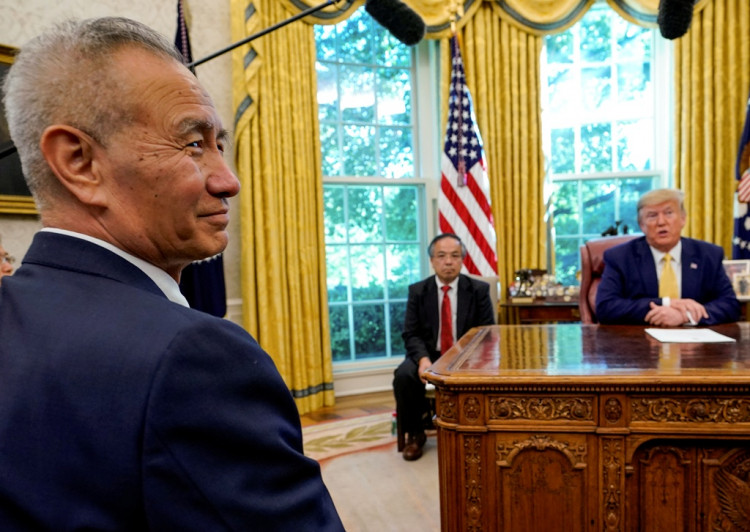China pledged to increase buying of American goods as part of the US-China phase one deal to be signed on January 15. The Asian powerhouse is set to purchase a total of $200 billion of American goods within the next two years.
To be clear the official documents for the Phase One deal remained confidential. Reports said it is 80 pages long, waiting to be signed on Wednesday by US trade officials and Chinese delegation to be led by Chinese Vice Premier Liu He. The deal is to be signed at about 11:30 am at the White House.
According to unnamed sources who spoke with Reuters, the contract states that China will buy $80 billion of manufactured goods over the next two years. The Asian country will also purchase more than $50 billion in energy supplies and another $35 billion of other U.S. services.
China also pledged to buy US agriculture products worth $32 billion over the next two years, an increase from the $32 billion it used to buy in 2017. Mayor Brilliant, a senior U.S. Chamber of Commerce official, confirmed this one bit.
According to US Trade Representative Robert Lighthizer, phase one deal does not include agreement on whether Washington will cut tariffs on Chinese goods moving forward.
However, both countries pledged there wouldn't be more tariffs following their announcement of phase one deal in December. The US canceled tariffs that were supposed to take effect on December 15. It also reduced a 15% tariff on $120 billion of Chinese imports.
Businesses worldwide are reacting positively to the news. The rift between the world's two largest economies has been ongoing for more than 18 months now.
Asian stocks are generally higher on Tuesday as markets await more positive announcements from the White House. The news, however, was bad for safe-haven assets that we're gaining when the China-US trade was at its worst. Investors and traders made an exodus to safe-haven assets during the peak of the China-US trade war.
Gold slumped on Tuesday as more reports come in about the phase one deal signing. Bob Haberkorn, senior market strategist at RJO Futures said that a big stimulus for gold's slide is the easing geopolitical tensions between the US and China, as well as tensions with Iran. Gold rallied when tensions between the US and Iran escalated but the tension had since subsided.
Most recently, US President Donald Trump said phase two deal would be put on the table after the US November Elections.






